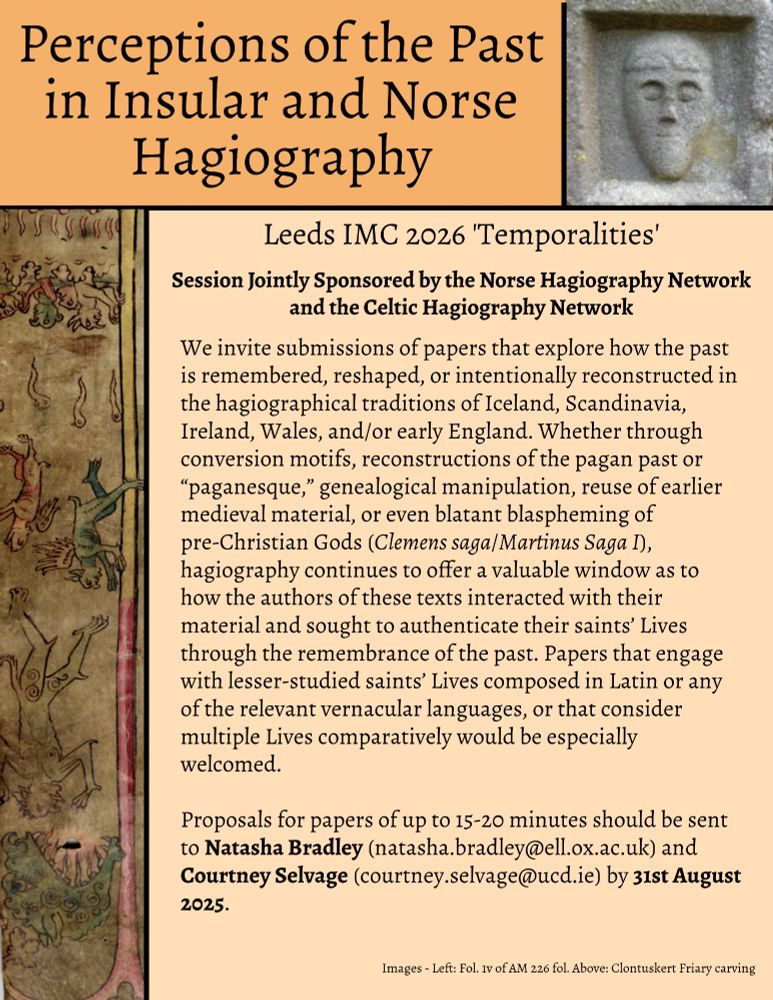Norse Hagiography Network
@networknorse.bsky.social
220 followers
120 following
87 posts
The Norse Hagiography Network is an international, interdisciplinary network with the aim of bringing together scholars with similar interests for collaboration
Posts
Media
Videos
Starter Packs
Pinned
Reposted by Norse Hagiography Network
Reposted by Norse Hagiography Network
Reposted by Norse Hagiography Network







